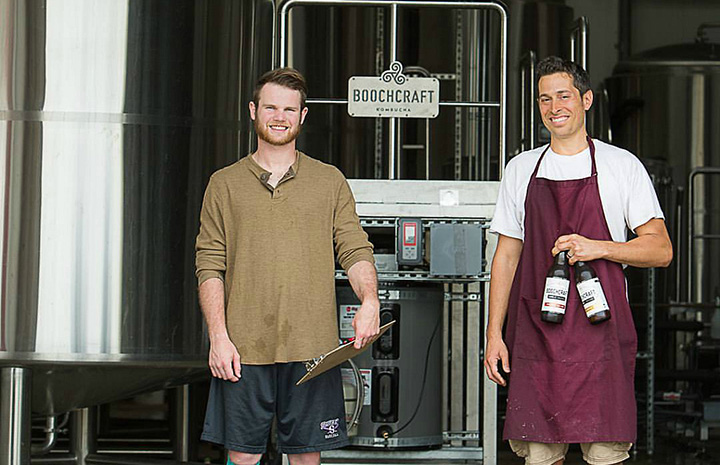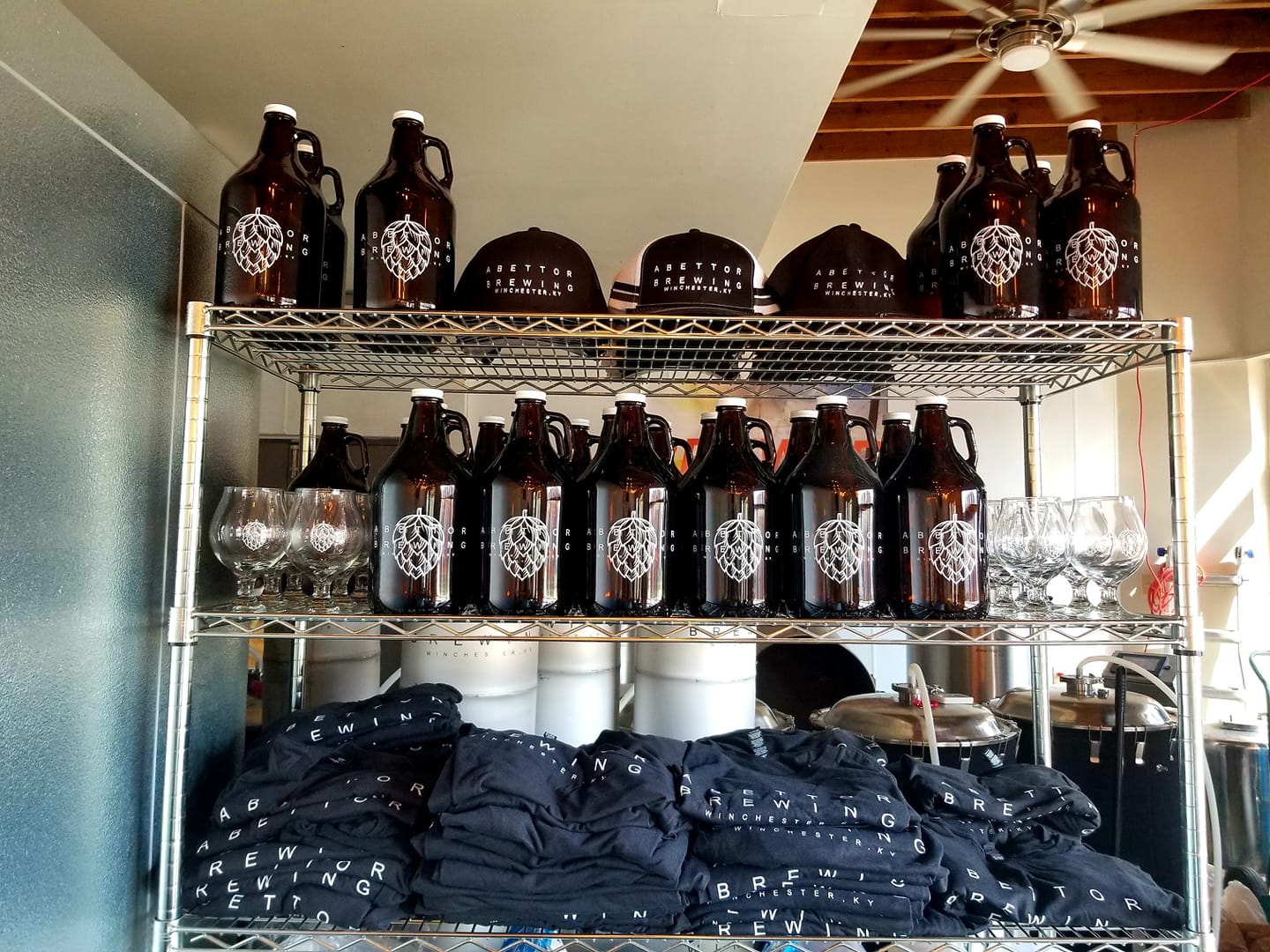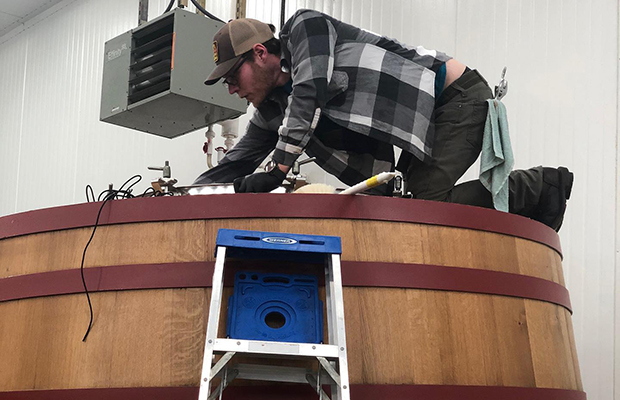
This is a part of a continuing series of Q&As with members of the brewing community from across the U.S.
Brewer Magazine will share business and personal insights from Brewmasters, Head Brewers, Brewing Managers, Sales Directors, QCQA Managers and others each weekend to help you get to know each other better in the industry and learn more to better develop your own brand.
Adam Hiner, co-founder/Head of Impact Initiatives, Boochcraft — Chula Vista, California
BREWER: How has 2020 altered your business ideas for what you will be doing in the coming years?
HINER: Well, we were really hoping to open a taproom this year, but that plan was pushed off into the future. Related to that, we’ve had to rethink what “experiential” marketing and discovery means at Boochcraft. We had this unfair advantage that sampling people in real life (at events, at grocery demos, etc) would create this “ah-ha!” moment and convert curious acquaintances into friends of the brand, simply based on the quality and novelty of our liquid itself. Now, we’re trying to build out the intangibles of what makes us Boochcraft even when you take that sampling out of the equation. We came into 2020 with big plans to a) launch our rebrand and b) address two liabilities for us: taprooms and draft business. A silver lining is that those weaknesses turned into strengths when COVID hit and our already strong off-premise business accelerated our business to over 80% YTD. We also lost one of our most critical marketing tools with the loss of events. We attribute much of our success to “liquid to lips” sampling and demos to educate people on hard kombucha. The loss of experiential marketing necessitated a quick pivot toward digital and the accelerated development of a variety pack that launches this fall.
BREWER: What have been some of your biggest growth drivers in 2020 and how do you see them continuing to be in 2021?
HINER: For us, organic demand has always been the primary growth factor. From a tactical standpoint, we’ve seen a huge growth in our chain business. One thing that uniquely hasn’t been a growth factor is opening up new markets; we’re agonizingly deliberate about choosing new footprints wisely. Our product is challenging to scale because of the quality of ingredients and the particular nature of our process (juicing the vast majority of our flavors in-house in addition to brewing the base Kombucha), so our priority is making sure our existing customers are well-served before we kick down new doors. We’ve continued to lead the category with a strong focus on market saturation. We are immensely proud of our 10-state cold chain distribution network that gives us a strong path to market. While the majority of our business continues to be in the natural/specialty retail space with retailers like Whole Foods and Sprouts, we’ve had major breakthroughs this year in national retailers such as Kroger, Albertson’s, Target, and HEB. With capacity increases, on came a host of new innovation for us, launching the transition to six-packs, the launch of 16 oz cans, the Heirloom Series, a seasonal six-pack, and our Liquid Arts program. The future looks a lot like continuing to fill gaps and build the hard kombucha category in the Western US. We’ll start looking Eastward at the horizon, but it’ll be at a really deliberate pace. We’re not interested in a land grab.
BREWER: What do you feel have been the biggest stumbling blocks in your growth and how have you found a way to get around them or pivoted to a new avenue for growth?
HINER: We’ve consistently been one step behind the pace of expansion. Each time we invest capital in raising our ability to produce, we find ourselves hitting our heads on the ceiling inside six months. We’ve never had a demand problem, but given our commitment to sustainability and quality, our bottlenecks have continued to be on the supply side. Right now, our obstacle is space—we have to find a new building in Chula Vista that will enable us to scale from years 5 to 10 and continue to innovate.
BREWER: What innovation are you looking at right now, be it in technology, equipment, raw materials, business model, etc.? How have you pegged that to help in the growth or development of your company?
HINER: Our unique challenge comes with scaling our juicing operation. Since we are dogged in our desire to vertically integrate as close to 100% as possible, we have continued to invest in being able to expand the fruits we’re able to process. This year we added pitted fruits—cherries, peaches, plums, etc—and we’re working toward higher confidence on berries, which are really challenging to work with.
BREWER: Are there any upcoming changes in legislation in your state that are worth noting? How have you been involved?
HINER: Because our category is so new, and breweries like ours generally aren’t recognized by the beer brewers associations and guilds, there is little in the way of legislative efforts on behalf of Hard Kombucha. That said, there is an uneven classification of Hard Kombucha that is regulated from state-to-state, and even at a federal level that is going to require some forward-thinking and advocacy. Also, there are currently no agreed-upon quality standards, so we hope to be part of future conversations with our fellow Hard Kombucha brewers to ensure a healthy, sustainable category long-term.
BREWER: What are you working on now to be your newest assets in your portfolio for the coming year? How did you come to those decisions?
HINER: We’ve got 12 small-batch releases slated under the Liquid Art Lab line. We’ve developed four low-calorie Booch flavors that will start to be released under the Boochcraft Sessions banner in 2021. We’re adding some unique botanical innovations for our fifth anniversary. And we’re adding a couple of exciting new flavors to our core lineup for the first time since 2019. We’re continuing to explore bold new ideas in the ‘Beyond Beer’ space, but I can say with confidence we have zero desire to release a hard seltzer.






Be the first to comment